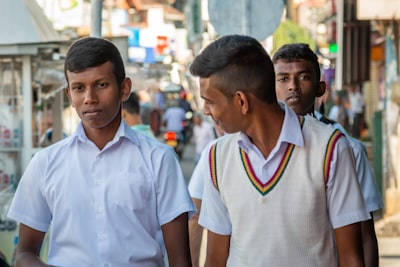Justice at a Crossroads: Sri Lanka’s War Crimes Reckoning
In a move that reverberates through human rights circles and the halls of international law, the UN human rights chief has publicly urged Sri Lanka to prosecute individuals responsible for war crimes committed during its brutal civil conflict. This demand is more than a call for retribution—it is a test of the nation’s commitment to truth, justice, and reconciliation.
Sri Lanka’s War Legacy: Unhealed Wounds
The Sri Lankan civil war, fought between government forces and the Liberation Tigers of Tamil Eelam (LTTE) from 1983 to 2009, left tens of thousands dead, with both sides accused of atrocities against civilians. More than a decade since the guns fell silent, substantial evidence points to gender-based violence, enforced disappearances, and extrajudicial killings—reckoning has remained elusive.
The Dilemma: Justice vs. Stability
Why has justice been so slow? Sri Lanka’s government claims pursuing high-profile prosecutions risks reigniting ethnic tensions. Critics argue that without accountability, true peace is a mirage. The dilemma crystallizes as follows:
| Argument for Prosecution | Argument Against Prosecution |
|---|---|
| Fulfills international human rights law | Risks reopening ethnic wounds |
| Deters future abuses | Might destabilize fragile recovery |
| Respects victims and fosters trust | Could undermine post-war reconciliation |
| Enhances Sri Lanka's global reputation | Potential backlash from implicated elites |
Who Is the UN Rights Chief?
Currently, the UN High Commissioner for Human Rights is Volker Türk, a seasoned diplomat known for his candidness on states’ obligations under international law. His intervention raises the profile—and stakes—of Sri Lanka’s accountability process.
Beyond Names—Why Action Matters
"Naming perpetrators is not justice; prosecuting them is."
— Transitional justice expert
What’s at stake? If Sri Lanka acts, it could set a precedent for other post-conflict societies, showing that even entrenched interests can’t guarantee impunity. If not, it reinforces a global trend of selective justice.
International vs. Domestic Trials
While the UN suggests domestic trials, skepticism remains over the independence of Sri Lanka’s judiciary. International observers favor a hybrid model—local judges, international oversight. This approach, used in Sierra Leone and Cambodia, brings transparency but raises questions on sovereignty.
The Bottom Line: A Defining Choice
The call for justice is not just about Sri Lanka; it is about whether the world’s mechanisms to address war crimes have teeth—or merely bark. As the spotlight sharpens, Colombo must decide: confront the ghosts of war or risk forever being haunted by them.
This article was inspired by the headline: 'UN rights chief asks Sri Lanka to punish war criminals'.

Comments
No comments yet. Be the first to comment!